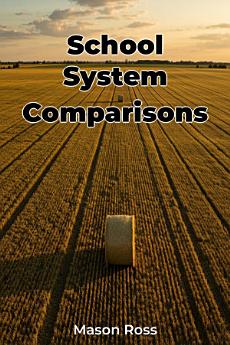School System Comparisons
Feb 2025 · Publifye AS
Ebook
73
Pages
family_home
Eligible
info
reportRatings and reviews aren’t verified Learn More
About this ebook
School System Comparisons offers a deep dive into global education by comparing national school systems and their educational outcomes. It examines scoring methodologies and leverages international assessment studies like PISA, TIMSS, and PIRLS to provide an objective view. One intriguing fact is how cultural and socio-economic factors significantly influence standardized test scores, highlighting the complexity beyond mere academic performance. The book uniquely synthesizes quantitative data with qualitative insights, offering a nuanced perspective valuable for policymakers and educators.
The book progresses systematically, starting with key concepts in educational assessment and international comparisons. It then analyzes case studies of nations with varying success levels, culminating in policy recommendations for reform. It also delves into how international comparisons can inform educational policy, addressing debates on standardized testing.
The book's approach emphasizes that effective educational models are often context-specific, shaped by unique national circumstances, connecting education to national productivity and social mobility.
Rate this ebook
Tell us what you think.
Reading information
Smartphones and tablets
Install the Google Play Books app for Android and iPad/iPhone. It syncs automatically with your account and allows you to read online or offline wherever you are.
Laptops and computers
You can listen to audiobooks purchased on Google Play using your computer's web browser.
eReaders and other devices
To read on e-ink devices like Kobo eReaders, you'll need to download a file and transfer it to your device. Follow the detailed Help Center instructions to transfer the files to supported eReaders.








